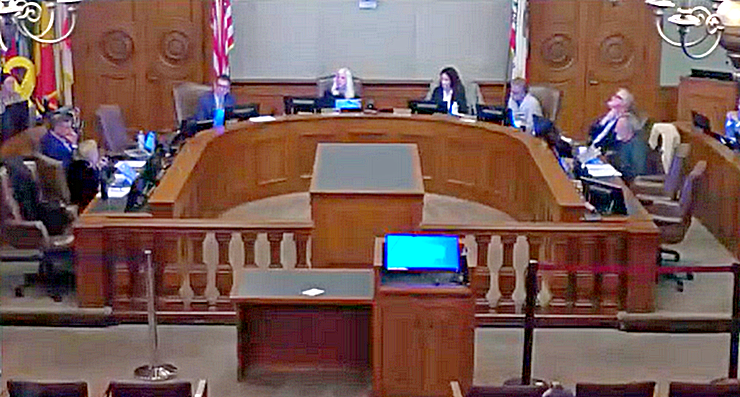
Los Angeles County Board of Supervisors Chair Kathryn Barger on Tuesday opposed a motion to declare a local state of emergency in response to federal immigration enforcement actions, casting the sole dissenting vote in a 4-1 decision.
The emergency declaration, approved by the board majority, alleges that ongoing federal immigration raids are preventing people from going to work and forcing some businesses to close.
Barger, who represents Altadena and Pasadena, said her vote was rooted in concerns about governance and the appropriate use of emergency powers—not immigration status. “Families across Los Angeles County are afraid, and that fear is real,” she said in a statement following the vote. “I’ve spoken with members of our Latino community who live with the daily anxiety that immigration actions could separate families and destabilize neighborhoods. That fear deserves to be acknowledged with honesty and compassion.”
However, Barger argued that invoking emergency powers in this context is a misuse of authority. “Emergency powers exist for crises that pose life and death consequences like wildfires—not as a shortcut for complex policy issues,” she said. “Stretching emergency powers for federal immigration actions undermines their purpose, invites legal challenges, and circumvents the public process.”
She also warned that potential litigation stemming from the declaration could place additional strain on the county’s already tight budget. “Potential legal challenges will also put an additional fiscal burden on Los Angeles County’s budget—a budget that’s already stretched thin,” Barger said.
Instead of what she characterized as symbolic gestures, Barger said she supports targeted, community-centered programs such as legal aid and rental assistance. “We need real solutions, not symbolic gestures,” she said. “I’ll continue to support targeted, community-centered programs like legal aid and rental assistance that provide meaningful help to vulnerable families while respecting legal limits, protecting County resources, and preserving public trust.”

















